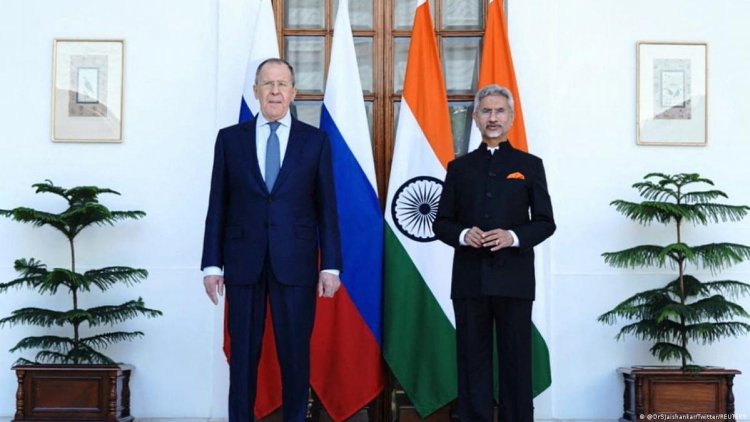India - Russia: Ties at Crossroads
STORIES, ANALYSES, EXPERT VIEWS

India’s diplomatic manoeuvres have touched all the right chords in the last few years. This is particularly true of the post-Ukraine times with geopolitics throbbing anxiously. India has managed to shine in such dire times, writes Swasti Rao (Associate Fellow, Europe and Eurasia Center, at the Manohar Parrikar Institute for Defence Studies and Analyses), “unleashing a truly intersectional global moment that has ensured steady economic growth, expanded diplomatic heft and footprint and wondrous respect for commitment to the ‘global south’. At the heart of this success, as many would argue, lies India’s commitment to multi-alignment….”
Glorifying the means and losing sight of the end
What modern India revels in, and rightly so, is the unmissable subtext “about the optimal utilisation of India’s civilisational strength and its elegant multi-aligned posture in the politics among nations. The aspiration is to ultimately make India a ‘vishwaguru', a world leader, a power centre. Long story short, it means an unwavering focus on amassing India’s comprehensive national strength, namely hard power, economic power and techno-polar traction. That is the quintessence of the India Way, a phrase made famous by external affairs minister S Jaishankar.”
The commentariat, however, writes Rao “often entangles itself in glorifying the means and losing sight of the end. That’s where it defeats the purpose.” Nowhere was the disjunct most unobscure than in the recent visit by Jaishankar to Moscow. Whereas, PM Modi’s only physical meeting with President Putin after the Russia-Ukraine war was on the sidelines of the Shanghai Cooperation Organisation (SCO) summit in Uzbekistan in 2022, “by contrast, one cannot even count the number of high-profile bilateral leaders’ meetings India has had with leaders of the US, EU, France, Germany etc despite disagreements.”
Stating that the real issues in the Russia-India relationship are too technical and complicated, Rao identifies “least two major roadblocks to substantiating India-Russia ties in a fast-changing world.”
Economic and defence hurdles
The first, is India’s purchase of Russian oil. This was done because, as emphasised repeatedly by the government, it was beneficial to India’s economic interests and not to defy Western sanctions. “However, unresolved payment issues, ballooning trade deficit and Russia’s repeated production cuts have dented the discounted oil ecosystem……” And even “as pressure mounts on Moscow to increase defence spending back home, the priority is not to tackle trade deficits with New Delhi.”
However, “India’s humongous weapons dependence on Russia and subsequent joint production of weapon systems in the decades that followed 1971 is a crucial pillar of India-Russia steady relations.”
The China factor
The second roadblock to India-Russia ties, according to Rao “is undoubtedly the China factor. The Ukraine war and its aftermath have aligned Russia with China in a way that is unarguably complicated for India’s aspirations of keeping Asia multipolar…..And today the uncomfortable question is whether India’s engagement with Russia will offset Russia’s all-encompassing dependence on China.”
It is important to note that what will truly guide India- Russia bilateral relations “is not India’s commitment to remain multi-aligned, which is almost a foregone conclusion. Rather it is Russia’s commitment to remain neutral between India and China that is anything but a foregone conclusion. By all available markers, Russia’s dramatic dependence on China is only set to grow further.”
New Delhi should therefore, “certainly engage Russia in more constructive terms, capitalise on the goodwill of historic friendship and set up enabling frameworks to reduce trade deficit et al. But at the same time, it must not lose sight of the end—lest multipolarity become messy-polarity.”
















